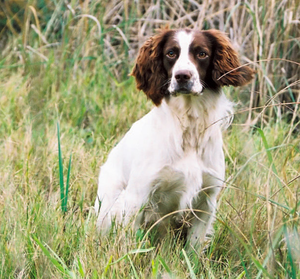Online Course
ICB Seminars in Canine Genetics
FORMAT
I will pose a question, and our goal is to come up with the information we need to answer it. We're going to stick to science, not opinions, anecdotes, and personal experience. We will work with published information. We are not going to be critiquing the science; there won't be any discussions about statistics or what you might see as problems in the way a study was done, simply because those are different issues that are beyond what we want to do here. This will be about the process of making a sound decision.
I will pose a question, and our goal is to come up with the information we need to answer it. We're going to stick to science, not opinions, anecdotes, and personal experience. We will work with published information. We are not going to be critiquing the science; there won't be any discussions about statistics or what you might see as problems in the way a study was done, simply because those are different issues that are beyond what we want to do here. This will be about the process of making a sound decision.
PURPOSE
The goal of this seminar-type class is to practice the skills of critical thinking in discussions of topics of interest to dog breeders and owners.
The goal of this seminar-type class is to practice the skills of critical thinking in discussions of topics of interest to dog breeders and owners.
PREQUISITES
There are no formal prerequisites for the seminar. However, to address the types of questions we will raise, you will need to understand the basics of population genetics, because they will not be taught here. Consequently, it is strongly suggested that you take at least one of the basic population genetics courses at ICB (Basic Population Genetics and Managing Genetics for the Future).
There are no formal prerequisites for the seminar. However, to address the types of questions we will raise, you will need to understand the basics of population genetics, because they will not be taught here. Consequently, it is strongly suggested that you take at least one of the basic population genetics courses at ICB (Basic Population Genetics and Managing Genetics for the Future).
You will learn more about the mission of the course in my blog post Do you know what you don't know?
TOPICS
We'll address a new topic every month, and each class will have a private Facebook group for discussion. I will try to choose topics that might be about a specific problem or a particular breed but will make you exercise basic skills of scientific thinking.
The fee for participating in each topic is $50. Before the course starts, you will receive an email with a link to the Facebook group we will be using.
We'll address a new topic every month, and each class will have a private Facebook group for discussion. I will try to choose topics that might be about a specific problem or a particular breed but will make you exercise basic skills of scientific thinking.
The fee for participating in each topic is $50. Before the course starts, you will receive an email with a link to the Facebook group we will be using.



